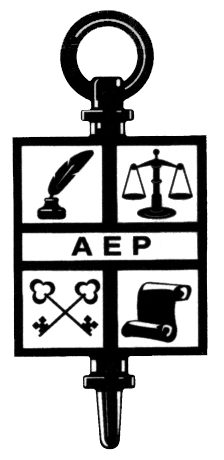Marianne Ludlow, an experienced Utah estate planning attorney, discusses 4 ways you can legally protect yourself and your family during the COVID-19 outbreak.

Estate Planning


The SECURE Act and Its Effect on Your Retirement Savings
Estate Planning, Marianne Ludlow, Retirement Planning, January 22, 2020In December of 2019, President Trump signed the Setting Every Community Up for Retirement Enhancement Act (SECURE Act) effective January 1, 2020. The Act is the most impactful legislation affecting retirement accounts in decades. The SECURE Act has several positive changes: It increases the required beginning date (RBD) for required minimum distributions (RMDs) from your individual retirement accounts from 70 ½ to 72 years of age, and it eliminates the age restriction for contributions to qualified retirement accounts. However, perhaps the most significant change will affect the beneficiaries of your retirement accounts: The SECURE Act requires most designated beneficiaries to.

Should You Talk With Your Family about Your Estate Plan
Estate Planning, Family, Marianne Ludlow, November 23, 2019Many of us labor a lifetime to build up our assets and fight for causes that matter to us. Few things are more fulfilling than the thought of sharing what we have worked hard for and leaving a legacy for family. Of course, it’s impossible to plan for every eventuality, but careful conversations can reduce two future risks: a) Your intentions regarding your estate weren’t made clear, resulting in the potential for costly, time-consuming conflict. b) Your family or other beneficiaries did not understand or share your wealth management vision, resulting in assets not being managed well after your death. The good.

Can a Community Property Trust Save You Taxes
Estate Planning, Marianne Ludlow, Tax Savings, November 23, 2019When it comes to your family’s legacy, every dollar you can save from tax collection counts. One way to keep your assets out of the hands of the IRS is the formation of a community property trust. Why Establish A Community Property Trust The short answer is it can save a married couple substantial capital gains taxes on highly-appreciated property (e.g. stock, real property, business interests) sold after the first spouse dies. All the assets in a community property trust are eligible for a step-up in their tax basis on the death of the first spouse, whereas, in a typical Utah revocable trust, only.

Passing on Your Wisdom with Your Wealth
Estate Planning, Family, Marianne Ludlow, October 18, 2019Many people who inherit wealth or small businesses are at significant risk for essentially squandering the wealth. Here are a few pointers for setting up your beneficiaries for success:

Powers of attorney: What type do you need?
Disability Planning, Estate Planning, Marianne Ludlow, Power of Attorney, August 28, 2018Estate planning typically focuses on what happens to your assets when you die. But it’s equally important (some might say more important) to have a plan for making critical financial and medical decisions if you’re unable to make those decisions yourself. That’s where the power of attorney comes in. A question that people often struggle with is whether a power of attorney should be springing or nonspringing. To spring or not to spring A springing power of attorney is effective on the occurrence of specified conditions; a nonspringing, power of attorney is effective immediately. Typically, springing powers would take effect if.

Provide for your spouse, then your kids, with a QTIP trust
Estate Planning, Estate Tax Savings, Family, Marianne Ludlow, Wills and Trusts, August 17, 2018If you want to preserve as much wealth as possible for your children, but you leave property to your spouse outright, there’s no guarantee your objective will be met. This may be a concern if your spouse has poor money management skills or if you two don’t see eye to eye on how assets should be distributed to your children. It could also be a concern if you have children from a previous relationship; you may want to provide for a current spouse while he or she is alive, but have your assets go to your children upon your spouse’s.

How to maintain family harmony with Trusts
Asset Protection, Blended Families, Estate Planning, Marianne Ludlow, Wills and Trusts, August 8, 2018A traditional trust can sometimes create a conflict between the lifetime (i.e. beneficiaries that have an interest in trust assets just for their lifetime) and remainder beneficiaries (i.e. beneficiaries that have an interest in the trust after the lifetime beneficiary). For example, a person may establish a trust that gives their surviving spouse a lifetime income interest in the trust assets but, upon the spouse’s death, pays the remainder of the trust’s assets to their children. In that situation, investment strategies that provide growth that benefits the children (the remainder beneficiaries) can leave the spouse (the lifetime beneficiary) with little.

Your original will: Does your family know where to locate it?
Estate Planning, Marianne Ludlow, Uncategorized, Wills and Trusts, July 27, 2018In a world that’s increasingly paperless, you’re likely becoming accustomed to conducting a variety of transactions digitally. But when it comes to your last will and testament, only an original, signed document will do. A photocopy isn’t good enough Many people mistakenly believe that a photocopy of a signed will is sufficient. In fact, if a probate is necessary, Utah requires that a deceased’s original will be filed with the probate court. If your family or executor can’t find your original will, there’s a presumption that you destroyed it with the intent to revoke it. That means the court will generally.

Use the Proper Tools to Fix a Broken Trust
Estate Planning, Marianne Ludlow, Tax Savings, Wills and Trusts, July 14, 2018An irrevocable trust has long been a key component of many estate plans. But what if it no longer serves your purposes? Is it too late to change it? Under Utah law, there are options to fix a “broken

How to Protect Your Will or Trust From Being Challenged
Asset Protection, Disability Planning, Estate Planning, July 7, 2018Undue influence is an act of persuasion that overcomes the free will and judgment of another person. It may include exhortations, insinuations, flattery, trickery and deception.
Frequently, undue influence happens when an elderly individual, who may or may not have all of his or her bearings, is convinced to change provisions in a will or otherwise suddenly rewards another person, such as a caregiver.

A SLAT Irrevocable Trust Can Offer Estate Tax Savings
Asset Protection, Estate Planning, Estate Tax Savings, Marianne Ludlow, Wills and Trusts, July 3, 2018The most effective estate planning strategies often involve the use of irrevocable trusts. But what if you’re uncomfortable placing your assets beyond your control? What happens if your financial fortunes take a turn for the worse after you’ve irrevocably transferred a sizable portion of your wealth? If your marriage is strong, a spousal lifetime access trust (SLAT) can be a viable strategy to obtain the benefits of an irrevocable trust while creating a financial backup plan. Indirect access A SLAT is an irrevocable trust that authorizes the trustee to make distributions to your spouse if a need arises. Like other.

What estate planning strategies are available for non-U.S. citizens?
Estate Planning, Family, Marianne Ludlow, Wills and Trusts, June 30, 2018Non-U.S. citizens in the United States face some estate planning challenges when it comes to taxes. If you’re a U.S. resident, but not a citizen, the IRS treats you similarly to a U.S. citizen, with a few exceptions. But if you’re a nonresident alien, the tax treatment of your estate will be significantly different. Understanding residency IRS regulations define a U.S. resident for federal estate tax purposes as someone who had his or her domicile in the United States at the time of death. One acquires a domicile in a place by living there, even briefly, with a present intention.

4 estate planning techniques for blended families
Estate Planning, Family, Marianne Ludlow, Wills and Trusts, June 30, 2018Today, it’s not unusual for a family to include children from prior marriages. These “blended

Should You Name a Minor as the Beneficiary of an Insurance Policy?
Estate Planning, Insurance Planning, Wills and Trusts, May 31, 2018Naming a minor as beneficiary of a life insurance policy or retirement plan can lead to unintended outcomes. A common estate planning mistake is to designate a minor as beneficiary — or contingent beneficiary — of a life insurance policy or retirement plan. While making your young child the beneficiary of such assets may seem like an excellent way to provide for him or her in the case of your untimely death, doing so can have significant undesirable consequences. Not per your wishes The first problem with designating a minor as a beneficiary is that insurance companies and financial institutions.

Integrating Asset Protection Trusts into Estate Plans
Estate Planning, Wills and Trusts, May 25, 2018Protecting assets against loss to creditors and predators or in divorce or bankruptcy has become a common goal of estate planning. With estate planning you can easily integrate asset protection trusts into your plans so that your hard-earned money is preserved. Third Party Asset Protection Trusts Provide Inheritance Protection Leaving an inheritance outright to a child or grandchild without any strings attached is risky in this day and age of high divorce rates, lawsuits, and bankruptcies. Aside from this, an outright inheritance may be frittered away or end up in the hands of a child’s spouse instead of in the.

IRAs and employer-sponsored plans such as 401(k)s are powerful retirement savings tools, but they also provide valuable estate planning benefits. If you hold a traditional IRA for life, for example, your children or other heirs can stretch out distributions over their lifetimes, maximizing the IRA’s tax-deferred growth and preserving more wealth for the family. If, however, you receive a distribution from an employer plan (such as when you change jobs or retire) and you don’t roll over the funds into an IRA or new plan within 60 days, you can lose these benefits. What are the tax consequences? If you.

Who Should Own Your Life Insurance Policy
Estate Planning, Insurance Planning, Wills and Trusts, March 20, 2018If you own life insurance policies at your death, the proceeds will be included in your taxable estate. Ownership is usually determined by several factors, including who has the right to name the beneficiaries of the proceeds. The way around this problem is to not own the policies when you die. However, don’t automatically rule out your ownership either. And it’s important to keep in mind the current uncertain future of the estate tax. If the estate tax is repealed (or if someone doesn’t have a large enough estate that estate taxes are a concern), then the inclusion of your.
How Estate Planning Can Benefit You While You Are Alive
Estate Planning, Uncategorized, March 17, 2018A common misconception is that estate planning equates to death planning. But planning for what happens after you die is only one piece of an estate plan. Just as important is making a plan for what happens if you become incapacitated during your lifetime. If it’s been a few years since you did your planning or if you’ve had any significant changes in your family or financial circumstances, it’s time to come in and make sure your incapacity plan is up to date. Avoiding Time-Consuming and Costly Guardianship or Conservatorship Proceedings Without a comprehensive incapacity plan in place, a judge.

Tax Season is Approaching. How Does the Recent Sweeping Tax Reform Affect You?
Business Planning, Estate Planning, March 13, 2018The tax legislation passed by Congress late last year (nicknamed the “Tax Cuts and Jobs Act”) represents significant changes to the tax code and will affect most Americans in some way. Not only were income tax brackets adjusted, but the tax rates in those brackets were reduced. The amount that you can pass down to your beneficiaries without paying estate or gift taxes rose substantially. Also business tax breaks were instituted. But there is a catch… this legislation has an expiration date. Widening Tax Brackets and Lowering Rates As you can see, many of the tax brackets for married (and.

Indicators Your Estate Plan is Out of Date
Estate Planning, Family, Marianne Ludlow, January 17, 2018There are many reasons to review and revise your legal documents often. Your answers to these important questions may indicate a need for updates. Here are some potential issues that may arise if you haven’t checked your estate plan lately, and some ways to resolve those issues. Potential Issue: Is the plan out of date? Remedy: Older plans are not bad if they accomplish the client’s goals. But new and improved techniques are being developed every day. Potential Issues: Was your plan drafted before 2011? Remedy: In 2011, tax laws changes and allowed a person to take advantage of the.

Estate Plan Basics for Love Birds and Newlyweds
Estate Planning, Family, Tips, January 17, 2018It’s that time of year again – for romantic dinners, chocolate hearts, writing cards and sending flowers. Some folks may just be hoping to get a date on the 14th; but for others, love is already in the air. Valentine’s Day is the second most popular day to become engaged, with nearly ten percent of all marriage proposals happening in February. Only December can boast more. While this is a joyous time for everyone, it’s no time to lose your heads. It’s a perfect opportunity for you and your new fiance to plan your new future – for richer or.

12 Vital Questions to Ponder this Holiday Season
Estate Planning, December 28, 2017Holidays are about loved ones and so is legal planning. Here are some important questions to ponder this holiday season, as you gather with family and friends. If any of your children received their inheritance today, would you be concerned about how they would handle it? Do you want to protect the money you pass down from your loved ones’ creditors, divorcing spouses, or predators? Do you have enough assets or life insurance to care for your children in your absence? Have you recently created a list of your assets, so that if something happens to you, family knows where.

A Legal Lesson from Princess Leia
Business Planning, Estate Planning, Family, Wills and Trusts, December 17, 2017This weekend, over four thousand theaters across the country were flooded with Star Wars fans. Americans young and old turned out to see the debut of Episode VIII: The Last Jedi. If you were there, you saw Carrie Fisher on screen, reprising her iconic role as Princess Leia Organa. Sadly, the actress who stole our hearts as Luke Skywalker’s unwitting twin sister was not there to see the premiere of this latest installment. On December 27, 2016, she passed away at the age of 60 from a heart attack. Carrie was the daughter of Debbie Reynolds, a major celebrity in.

Are the Grandchildren in Your Will or Trust?
Estate Planning, Family, Wills and Trusts, November 27, 2017We all wish to pass on hard-earned wealth to our offspring. With grandkids, especially, we often share a special bond that makes us want to provide well for their future. Do you have the proper precautions in place for these dreams to become reality? If you’re planning to include the grandchildren in your will or trust, here are five potential dangers to watch for, and ways you can avoid them. No age stipulation We have no idea how old the grandchildren will be when we die. If they are under 18 or financially immature when you pass on, they could.

Strengthen Your Blended Family Through Legal Planning
Estate Planning, Family, Tips, Wills and Trusts, November 27, 2017Most people today know and love someone from a blended family, or come from a blended family themselves. The latest statistics show 46 percent of weddings taking place in the United States today are the creation of a stepfamily. Blended families come in countless shapes and sizes, and can be just as diverse in their dynamics and values. If you are part of a blended family, you are aware of the unique benefits and challenges that can come with the territory. Because they are so unique, the process of protecting your family can be equally challenging. It is therefore important.

Have You Properly Funded Your Revocable Trust?
Estate Planning, Wills and Trusts, November 27, 2017Congratulation! You’ve formed a revocable trust – also known as a living trust. This is a great start to protecting your assets and your family’s future. But wait…Did you know that your family will not have access to the benefits of a revocable trust, if you haven’t transferred your assets? This needs to happen when the trust is formed, and continually updated throughout your life So how is this done? In order to enjoy the benefits of your revocable trust, you must transfer ownership of your assets from you, to the trust. We call this “Funding the trust.” Your assets.

5 Reasons to Embrace Estate Planning
Business Planning, Estate Planning, Tips, Wills and Trusts, November 4, 2017Some of us are familiar enough with the phrase “estate plan

Why Should I Review My Living Trust?
Estate Planning, Family, Wills and Trusts, June 29, 2017I am sure when you completed your estate plan you felt relief and confidence that all was in place for your loved ones. However, time marches on. Just as your life changes, your trust needs to change to fit your new circumstances. The little ones who were on your lap when you first set up your trust, may have little ones of their own now. The assets you own likely have multiplied or increased in value. The people you listed as executors or trustees may no longer be able to aid you and family dynamics may have changed. It is important to note that most older trust documents fail to include incapacity planning or government benefit provisions for trustees, such as Social Security, Medicare or Medicaid.

6 Things to Consider When Selecting A Guardian
Estate Planning, Family, Wills and Trusts, June 28, 2017Choosing who to care for your minor children in the event of your passing may well be one of the most difficult decisions you face as part of your planning process. The following is a list of suggestions to help you weigh out your options. The first thing to remember, though, is that nobody is going to parent your child exactly like you would. Looking for that “perfect

5 Things to Consider When Selecting A Trustee
Estate Planning, Family, Wills and Trusts, June 28, 2017Choosing someone to administer your estate may be a daunting task. This person is known as a fiduciary or someone who is legally obligated to act in your interest. After you thoughtfully set up your trust and the stipulations for taking care of your loved ones financially, you will need someone to act in your behalf to see it through. He or she will be responsible for continued management of the trust and/or distribution to the beneficiaries. The trustee will consult with the beneficiaries about periodic checks issued from the trust, expenses to be paid and permissible withdrawals against the principal. Here are some considerations for selecting the right person for the job.





